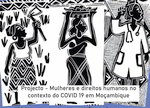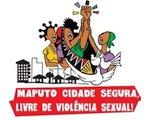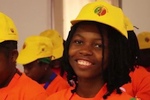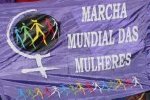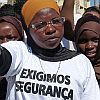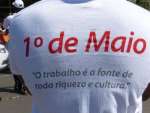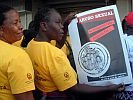Project focuses on the situation of women in Moatize
 Through the project “Empowering girls and women in mining areas, Moatize, Tete, 2016-2018”, with funding from the European Union, WLSA Mozambique is working on the human rights’ situation in areas of exploitation of natural resources. This has been, in recent years, a subject of the utmost importance and relevance, because it is affecting the lives of many communities, not only in Tete, but also in Cabo Delgado and Nampula, among other provinces.
Through the project “Empowering girls and women in mining areas, Moatize, Tete, 2016-2018”, with funding from the European Union, WLSA Mozambique is working on the human rights’ situation in areas of exploitation of natural resources. This has been, in recent years, a subject of the utmost importance and relevance, because it is affecting the lives of many communities, not only in Tete, but also in Cabo Delgado and Nampula, among other provinces.
The project started in the field in May 2016, and its overall objective is to contribute to improve the situation of girls and women in communities affected by mining in Moatize district, decreasing gender asymmetries and allowing them greater access to resources, with special relevance to the sexual and reproductive rights and gender violence.
The project had as its starting point a survey, to deepen understanding of the impact on women and girls of socio-economic transformations and dynamics in Moatize. The survey will serve as the basis for actions that intend to increase the sensitivity of the local actors, decision-makers and public opinion with regard to the impact of mining industries on girls and women in the communities. On the other hand, and thinking about the continuity of the action even after the end of the project, it is intended to strengthen women’s associations and local human rights organizations, empower and raise awareness among community leaders and State agents to ensure greater access to rights and resources for girls and women in the communities.
Therefore the survey purported to know how resettlement has affected the population, considering the differentiated impacts on girls and women, and to understand what mechanisms are developed for material and symbolic survival.
The “resettled” became a sociological and political category, with rights and social problems, but that basically have been ignored by the Government, concerned with preserving its discourse that mining is the right path to a better future for all. If it wasn’t for civil society that writes and publishes reports, organizes protest movements and opens up possibilities for other initiatives, the resettled would be ignored on the national scene.
The survey also considered the impact on the population of Moatize in general, usually little visible in the studies that have been undertaken. Yet, a strong impact on the cost of living was felt, pressure on resources such as land and housing, decreased quality of health services, education and transport. Also, as mentioned earlier, the implementation of a strongly masculine industry created serious imbalances that are reflected in the safety of women, with the occurrence of several incidents of sexual violence, increase in prostitution and in the number of premature marriages and early pregnancies, HIV and AIDS, and other sexually transmitted diseases.
Presently the survey report is in its final stages and will be made public in due course on this website.
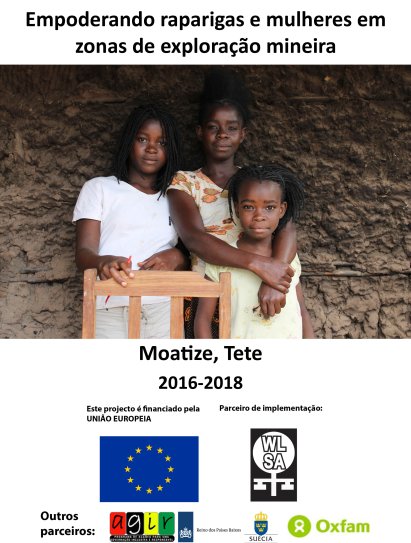







 Information in English
Information in English